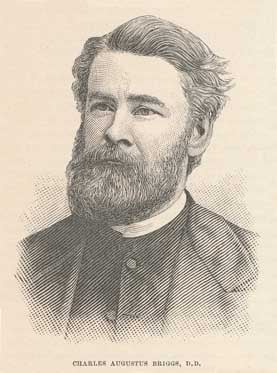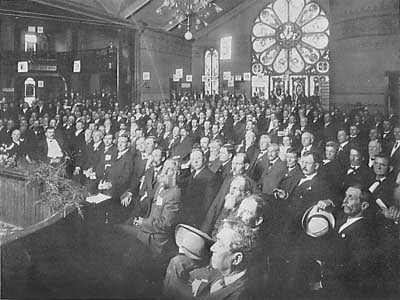Here was a case of a child raised without regard to religion. His parents were decent enough by the world’s standards, but they were not Christians. Nonetheless, God called him.
Ichabod Smith Spencer was born on February 23, 1798, in Suffield, Connecticut. His father’s death, when he was just seventeen, had a profound effect upon him, eventually prompting him to leave home a year later. Shifting around on his own, he took common labor jobs and came to reside in Granville, New York about 1816. In God’s providence, a revival was underway in that town, and Ichabod Spencer made a profession of faith as he joined the Congregational church there. His gifts soon drew attention and he was urged to pursue the ministry. By late 1826 he was licensed to preach and two years later he was ordained. Then in 1832, he accepted a call to serve the Presbyterian church in Brooklyn, New York, where he remained until his death in 1854.
In Sprague’s Annals of the American Pulpit, the Rev. Gardiner Spring wrote of Rev. Spencer’s preaching:
“It is characteristic of the best ministers that they are best at home, and most distinguished in their own pulpits. There was no ‘flourish of trumpets’ with Dr. Spencer, when he went abroad. He was not demonstrative in his nature, nor eager for the praise of men. He was emulous, but it was mainly to magnify the truths of God, and do good to the souls of men. No man was less desirous than he to ‘create a sensation’ and set the world aghast by his preaching. Yet was he exclusively devoted to his work. His heart, his thoughts, his studies and attainments, his time, his interests, his influence and his life, were given to the ministry. Few ministers of the Everlasting Gospel, if any, were more industrious; and few had less occasion to lamen misspent and wasted hours. The result was that he became one of the best and most effective preachers of the age.
“Few habitually spake like him in discourses of such instructiveness, such attractive persuasion, such withering rebuke of wickedness, or such happy effects upon the minds of men. He spake ‘the things which became sound doctrine,’ and declared ‘the whole counsel of God.’ He was cautious and wise, but he was urgent and in earnest. He was often tender to weeping, yet was he a most fearless preacher. There was a large commingling of the ‘Son of Consolation’ with the ‘Son of Thunder’ in his character. I have heard him say that he did not know what it was to be ensnared or embarrassed in preaching God’s truth, and that the thought of being afraid to utter it, because it was unpopular, never once entered his mind. There was something of nature in this, and more of grace; he was fearless of men, because he feared God. There was great variety in his preaching; he was not confined to a few thread-bare topics; his mind and heart took a wide range, and brought out of his treasure ‘things both new and old.’ Nor was he given to crude and imperfect preparations for the pulpit : a volume of sermons might be selected from his manuscripts, which would be a beautiful model for the youthful ministry, and a great comfort to the Church of God. His Sabbath Evening Lectures on the Shorter Catechism, as well as portions of his Lectures on the Epistle to the Romans, will not easily be forgotten by those who heard them.”
Words to Live By:
Concerning Gardiner Spring’s observation, that “It is characteristic of the best ministers that they are best at home, and most distinguished in their own pulpits.”—why do you think that might be so? Perhaps it is because at home they are most comfortable? No, I would rather think that it is because at home, a pastor has the greatest, most sincere concern for his hearers. They are his own congregation whom he loves and sacrifices himself for daily. Yet another reason to pray for your pastor.
For Further Study:
I do not know if Rev. Spencer’s lectures on the Catechism or on the Book of Romans were ever published, but two volumes of his sermons were. The first of those two volumes is currently in print. Another his works apparently has the greater fame–A Pastor’s Sketches: Conversations with Anxious Souls Concerning the Way of Salvation. A new edition of this latter title is pending. For more information, click here. [we have no financial incentive or connection with the publisher]



